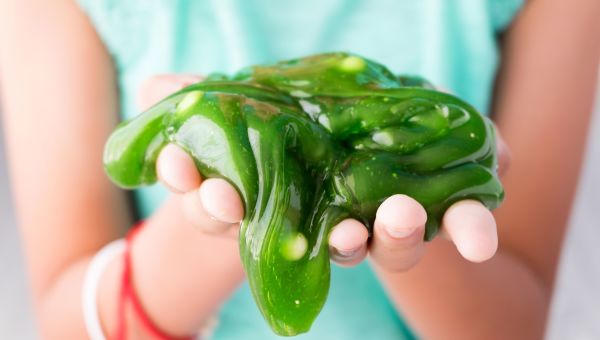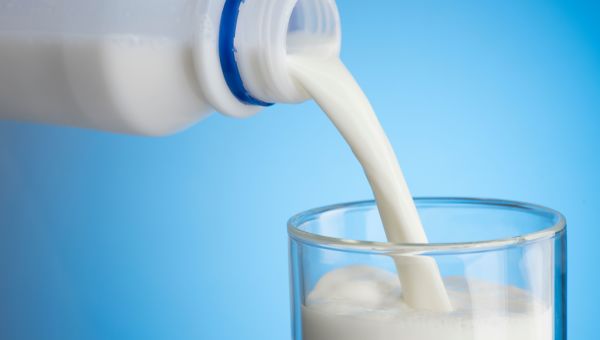Everything you've always wanted to know about mucus
But were too grossed out to ask, such as what does green snot even mean?

Mucus gets a bad rap. Slimy and gelatinous, we often wrongly dismiss it as a repulsive inconvenience—the gross gunk oozing out of our face whenever we get sick.
Yet, nothing could be further from the truth. This extraordinary substance is actually crucial to our health, protecting us from disease and safeguarding delicate tissues all over the body.
“Mucus serves many… Show More
Mucus gets a bad rap. Slimy and gelatinous, we often wrongly dismiss it as a repulsive inconvenience—the gross gunk oozing out of our face whenever we get sick.
Yet, nothing could be further from the truth. This extraordinary substance is actually crucial to our health, protecting us from disease and safeguarding delicate tissues all over the body.
“Mucus serves many functions, but mostly it’s a first-line defense against harmful things in the environment,” says Jordan Roberts, MD, a family physician at Grainger Medical Clinic in Salt Lake City, Utah.
Here, we’ll reveal the wondrous facts about this disgusting goop—and bust the myths keeping it from getting the respect it deserves.
Show Less
MYTH: Mucus’ sole purpose is to annoy you.
In fact, mucus is one of our best natural defenders. It acts as a filter, keeping bacteria, viruses, allergens and other particles from entering our bodies, where they can make us sick. Mucus also carries white blood cells and antibodies, which help kill germs if they do manage to sneak in.
Mucus… Show More
In fact, mucus is one of our best natural defenders. It acts as a filter, keeping bacteria, viruses, allergens and other particles from entering our bodies, where they can make us sick. Mucus also carries white blood cells and antibodies, which help kill germs if they do manage to sneak in.
Mucus functions as a moisture shield, as well, preventing important tissues throughout the body from drying out. These include your respiratory system—your nose, sinuses and lungs—as well as surfaces in the gastrointestinal (GI) tract and female reproductive system. (More on those a bit later.)
Show Less
MYTH: Your body only makes mucus when you’re sick.
When we’re healthy, we may not really think about our mucus—but it’s always there. We generate it constantly; our nose and sinuses produce a full liter of mucus daily, most of which we swallow.
When we’re ill or our tissues become inflamed, our respiratory system makes excess mucus to defend us… Show More
When we’re healthy, we may not really think about our mucus—but it’s always there. We generate it constantly; our nose and sinuses produce a full liter of mucus daily, most of which we swallow.
When we’re ill or our tissues become inflamed, our respiratory system makes excess mucus to defend us from germs. “It’s a protective response,” says Dr. Roberts. “Your body is trying to create extra goo that traps the particles, so they don’t invade your cells.”
Infections and allergies often trigger this surplus of mucus, which can change volume, viscosity (thickness) or color, depending on your ailment. Smoke, chemicals and pollution particles can prompt more mucus production, too.
Show Less
MYTH: Green snot means you need antibiotics.
The color of your snot is important, since it helps doctors diagnose your illness. Typically, clear or very light-yellow mucus is healthy. “If it does have a deeper yellow to brown color or if it has green in it—or even sometimes mucus can contain a bloody tinge—those are more concerning,” says… Show More
The color of your snot is important, since it helps doctors diagnose your illness. Typically, clear or very light-yellow mucus is healthy. “If it does have a deeper yellow to brown color or if it has green in it—or even sometimes mucus can contain a bloody tinge—those are more concerning,” says Roberts.
Contrary to popular belief, green mucus doesn’t automatically signal a bacterial infection. Jade-hued snot may be a sign of common colds and allergies. Antibiotics don’t help treat these illnesses, or any viral infection. So, you’ll likely get better without them.
When should you be medically evaluated? Roberts says to look out for green mucus coupled with other out-of-the-ordinary symptoms, like a fever over 102 degrees, significant sinus pain, shortness of breath or symptoms that improve before worsening again. Thick, white, pus-like mucus should be evaluated by a doctor. Sinus infections lasting over 10 days or worsening after a week are cause for concern, as well.
If you have an illness that compromises your respiratory system, like chronic obstructive pulmonary disease (COPD), report any changes in coughed-up mucus to your healthcare provider, since they may be a sign of something serious.
“We don’t mess around when a person with COPD comes in telling us that their mucus production has changed,” says Roberts. “They need to be treated promptly, or else they may end up in the hospital.”
Show Less
MYTH: Blowing your nose is the best way to get rid of mucus.
“Blowing your nose is probably the most ineffective way of clearing your nasal passage,” says Roberts. “It actually pushes, in some cases, secretions farther up into your sinuses.” An oft-cited study in the journal Clinical Infectious Diseases found as much, though researchers couldn’t say whether… Show More
“Blowing your nose is probably the most ineffective way of clearing your nasal passage,” says Roberts. “It actually pushes, in some cases, secretions farther up into your sinuses.” An oft-cited study in the journal Clinical Infectious Diseases found as much, though researchers couldn’t say whether it contributed to further illness.
Instead of going all-in on bulk tissues, experts recommend these steps to help moisten your air passages—key to recovery—and keep mucus flowing:
- Drink lots of fluids. Says Roberts: “When you get dehydrated, that’s when the mucus becomes really thick and difficult to cough out or get it out of your body.”
- Use a humidifier to keep nasal passages moist.
- Every few hours, press a damp, warm cloth to your face.
- Try saline nasal sprays or a nasal wash, like a neti pot. Make sure to read label warnings, as misuse of either can trigger serious problems. When using a neti pot, never fill it with water directly from your tap. Instead use distilled water, a sterile saline solution or water that has been boiled and then cooled. Make sure the device is clean and dry for each application.
- Avoid nasal decongestant sprays. If used longer than three days, they can cause increased congestion, relieved only by continued use of the spray.
- Take an over-the-counter decongestant or mucus-thinning medication, like guaifenesin.
Remember: Always speak with your healthcare provider before taking any new medication, including over-the-counter options.
Show Less
MYTH: Drinking milk makes more mucus.
When you’re ill, do you ever reach for a tall glass of leche? Odds are you take a pass, because you may have been told drinking milk creates more snot, leading to congestion and making it harder for you to swallow. Professional singers often skip the 2 percent before a performance for the same… Show More
When you’re ill, do you ever reach for a tall glass of leche? Odds are you take a pass, because you may have been told drinking milk creates more snot, leading to congestion and making it harder for you to swallow. Professional singers often skip the 2 percent before a performance for the same reasoning.
The dairy industry can relax, though. Milk doesn’t increase mucus production, nor will it exacerbate other symptoms of your cold. It may make both mucus and saliva thicker, however, which is why many believe the milk-mucus myth—and why vocalists might still want to avoid it.
To note: Some people with chronic obstructive pulmonary disease (COPD) find that milk thickens their phlegm, a kind of mucus produced in your lower respiratory system. If you have COPD, speak with your doctor about dairy products.
Show Less
MYTH: Mucus is exclusive to the respiratory system.
Nope. Various types of mucus are also found on our eyes, in our GI tract—where we digest food—and in the female reproductive system.
Mucus in our GI system creates a home for beneficial microbes and protects against bacterial infections. It also safeguards our stomach lining from the powerful acid… Show More
Nope. Various types of mucus are also found on our eyes, in our GI tract—where we digest food—and in the female reproductive system.
Mucus in our GI system creates a home for beneficial microbes and protects against bacterial infections. It also safeguards our stomach lining from the powerful acid necessary to digest food— “which is why mucus produced in your stomach helps prevent ulcers,” says Roberts.
In a woman’s reproductive system, mucus generated by the cervix lubricates you in preparation for sex. It also helps protect and moisturize vaginal tissues, maintains pH and harbors beneficial bacteria while trapping infection-causing ones. Trying to get pregnant? An increase and thinning of cervical mucus can indicate that you’re ovulating. And if you’re already pregnant, the mucus plug keeps your uterus safe from bacteria.
Show LessMore On


video

article

slideshow


video


video
